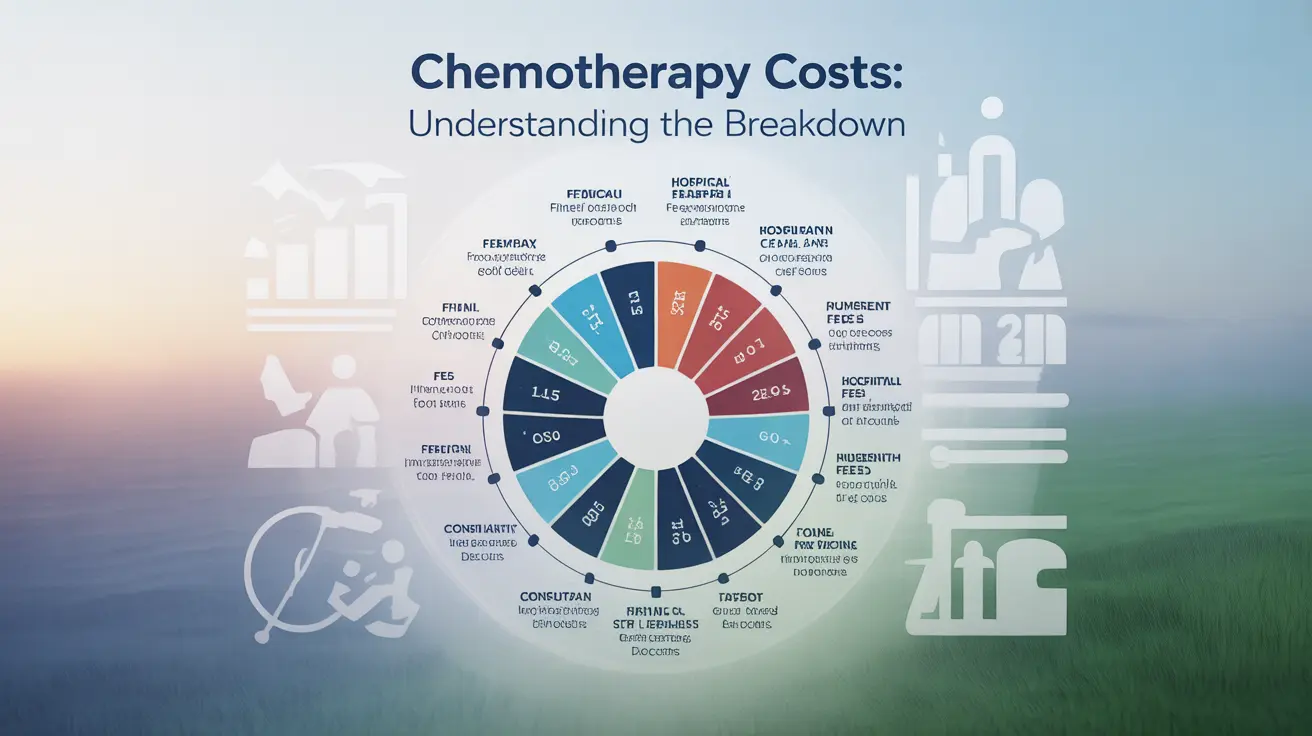Receiving a cancer diagnosis is challenging enough without having to worry about the financial burden of treatment. Understanding how much chemotherapy costs and the various factors that influence these expenses can help patients and their families better prepare for the journey ahead. This guide breaks down the key aspects of chemotherapy costs and explores available options for financial assistance.
The Basic Cost Structure of Chemotherapy
Chemotherapy costs can vary significantly depending on numerous factors, with total expenses potentially ranging from $10,000 to over $200,000 for a complete course of treatment. Without insurance, a single chemotherapy session might cost between $1,000 and $12,000, while the average monthly cost can exceed $30,000.
Costs With Insurance Coverage
Patients with private insurance typically face more manageable out-of-pocket costs, though these can still be substantial. Most insurance plans require copayments, deductibles, and coinsurance, which commonly result in annual out-of-pocket expenses between $2,000 and $10,000, depending on the specific policy terms.
Key Factors Affecting Chemotherapy Costs
Type and Duration of Treatment
The total cost of chemotherapy depends heavily on the specific drugs prescribed, the frequency of treatments, and the overall duration of the treatment plan. Some specialized medications can cost significantly more than standard options, particularly when treating specific types of cancer or advanced stages of the disease.
Additional Medical Services
Beyond the chemotherapy drugs themselves, patients often need various supporting medical services that add to the overall cost:
- Laboratory tests and imaging
- Anti-nausea medications and other supportive drugs
- Port placement and maintenance
- Regular doctor visits and consultations
- Emergency care for side effects
Medicare Coverage for Chemotherapy
Medicare beneficiaries typically have coverage for chemotherapy through different parts of Medicare. Part A covers inpatient treatment, while Part B covers outpatient care. Medicare typically covers 80% of approved charges, leaving patients responsible for the remaining 20% plus any deductibles.
Financial Assistance Options
Insurance-Based Solutions
Many patients can access financial support through various channels:
- Insurance case managers who can help optimize benefits
- Hospital financial counselors
- Prior authorization assistance
- Appeals support for denied claims
External Financial Aid Programs
Numerous organizations provide financial assistance for cancer patients:
- Cancer-specific nonprofit organizations
- Pharmaceutical company patient assistance programs
- Government assistance programs
- Hospital charity care programs
- Local community organizations
Strategies to Manage Chemotherapy Costs
Patients can take several steps to help manage their treatment expenses:
- Thoroughly review insurance coverage and understand all benefits
- Discuss treatment costs upfront with healthcare providers
- Ask about generic alternatives when available
- Explore clinical trials as potential treatment options
- Consider seeking care at in-network facilities
- Work with a financial navigator or counselor
Frequently Asked Questions
How much does chemotherapy typically cost with and without insurance?
Without insurance, chemotherapy can cost between $10,000 and $200,000 or more for a complete course of treatment. With insurance, patients typically pay between $2,000 and $10,000 annually in out-of-pocket costs, depending on their coverage plan and treatment needs.
What factors influence the overall cost of chemotherapy treatment?
The main factors affecting chemotherapy costs include the type and stage of cancer, specific drugs used, duration of treatment, frequency of sessions, additional medical services required, and the treatment facility's location and pricing structure.
How much can out-of-pocket expenses for chemotherapy be under Medicare?
Under Medicare, patients typically pay 20% of the Medicare-approved amount for chemotherapy after meeting their deductible. This can result in several thousand dollars in annual out-of-pocket costs, though the exact amount varies based on the specific treatment plan.
Are there financial assistance programs available to help with chemotherapy costs?
Yes, numerous financial assistance programs are available, including pharmaceutical company patient assistance programs, nonprofit organization grants, government assistance programs, and hospital charity care programs.
How can patients manage or reduce the high costs associated with chemotherapy?
Patients can manage costs by reviewing insurance coverage carefully, discussing treatment options and costs with healthcare providers, exploring generic alternatives, considering clinical trials, using in-network providers, and working with financial counselors or patient navigators.




